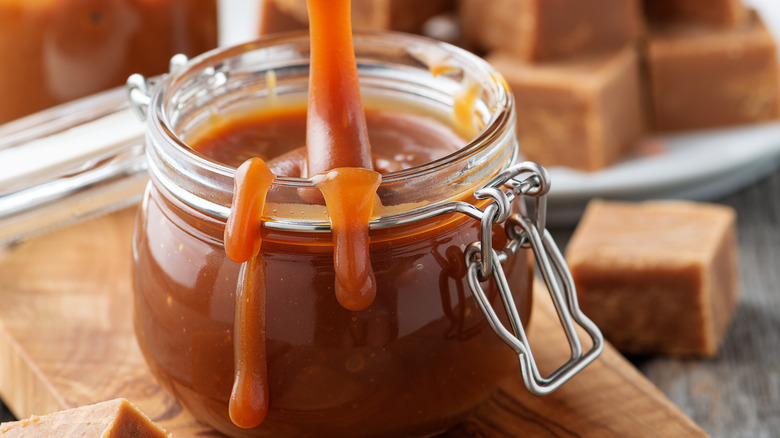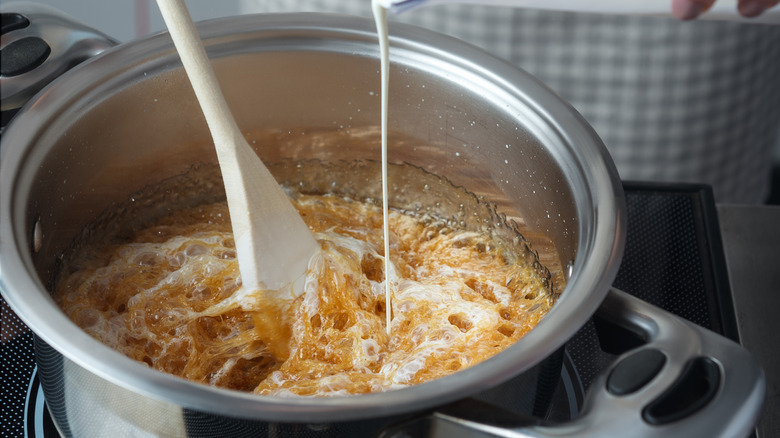It's Best To Avoid Ultra-Pasteurized Cream For Butterscotch Sauce
Butterscotch sauce is perfection drizzled onto just about any dessert or fruit. Whether you pour it on a plain banana and turn it into a fancy delicacy, or use it over biscuits, ice cream, or pound cake, the end result will probably be delicious no matter what. Aside from that caramelized molasses flavor from the brown sugar, you're also getting a robust milky fat flavor from the cream. Hence, for the best butterscotch experience, you should pay close attention to the type of cream you're using.
By all means, try to avoid ultra-pasteurized cream when making this golden syrup. Pasteurization is the process of heating the cream to a specific temperature for an extended period to kill harmful bacteria, while ultra-pasteurization involves heating the cream to an even higher temperature, which increases its shelf life. Using pasteurized cream over the ultra-pasteurized kind can make a noticeable difference in both the flavor and texture of your butterscotch sauce. The pasteurized type retains more of its natural flavor compared to ultra-pasteurized cream, and also has a fuller milky richness and an overall fresher flavor. This allows the true essence of the cream to shine through in the butterscotch sauce.
Use pasteurized cream for full luxury
Butterscotch sauce really depends on an equal balance of richness and sweetness, and without the former, you'll get something that tastes a bit more artificial. Ultra-pasteurized cream has a notably "cooked" flavor, especially with its addition of stabilizers that make it easier to whip. Unfortunately, a lot of commercially available heavy whipping creams you'll find at the store are ultra-pasteurized. You'll have to read the fine print to avoid this type of cream for butterscotch sauce.
Another thing to note is that ultra-pasteurized cream tends to have a thicker consistency due to the addition of stabilizers like carrageenan and guar gum, which are added to make up for the lost whey proteins that break down at high heat. Thus, you may find that it might be too thick for butterscotch sauce, which already uses sugar as a thickening agent. In fact, ultra-pasteurized cream is often used to thicken runny liquids — but with butterscotch, the extra viscosity may not be a welcomed effect. Pasteurized cream, with its lighter texture, blends more easily into the melted sugar, resulting in a silkier and more luscious sauced butterscotch.

